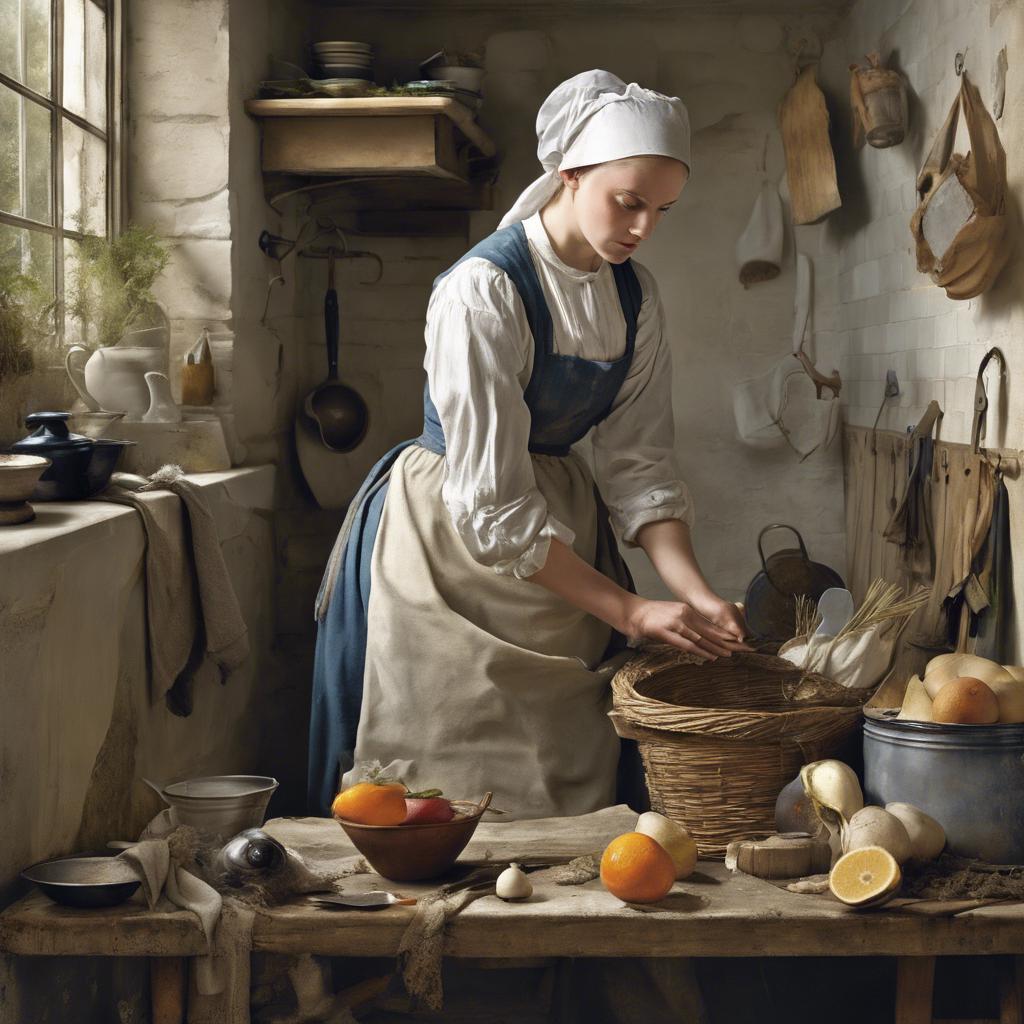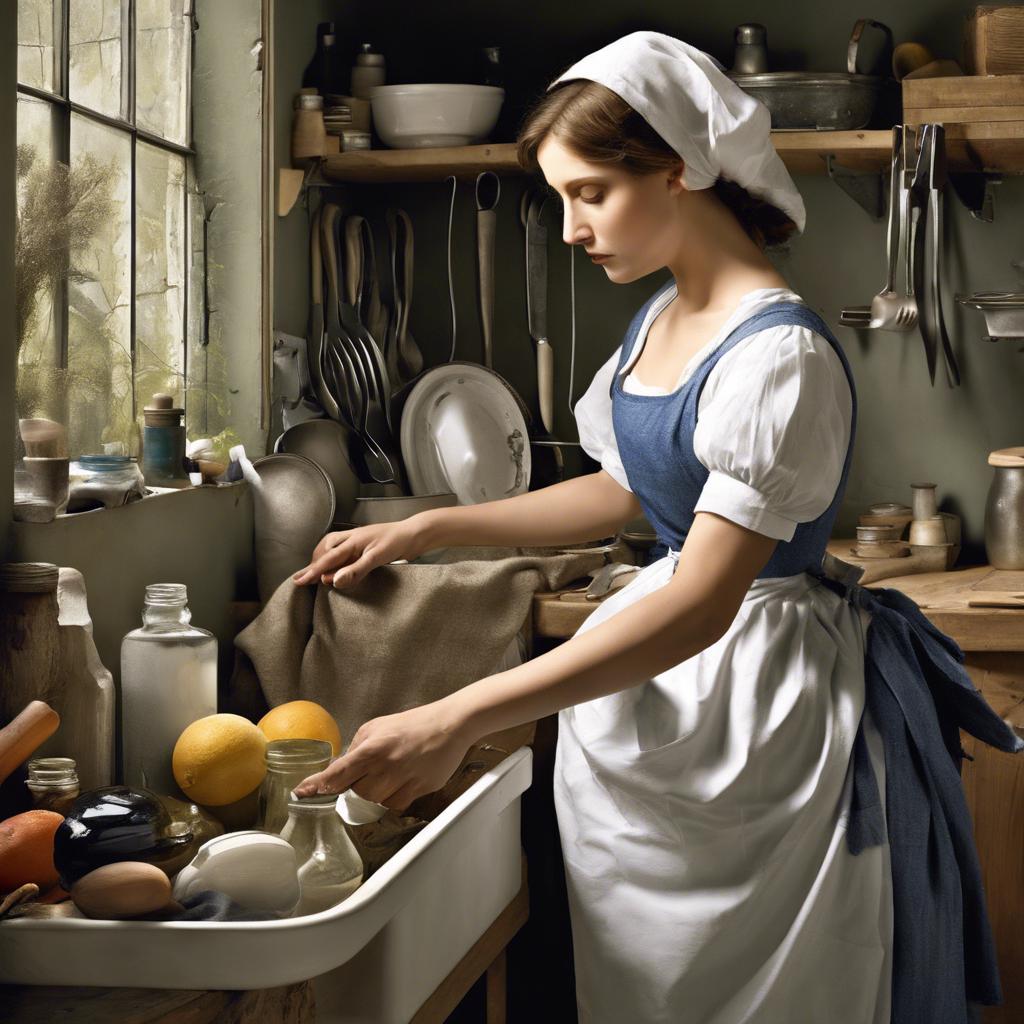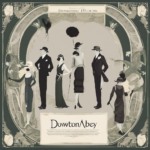In the annals of historical domestic service, the role of the scullery maid holds a paramount position. From the murky depths of the kitchen scullery, these unsung heroines tirelessly toiled to keep the household running smoothly. In this article, we delve into the intriguing origins and significance of the scullery maid, shedding light on their essential contributions to the grand tapestry of society.
Step Into the World of Cheryl Bolen
Dive into the enchanting stories of love, intrigue, and elegance set in the Regency Era. Cheryl Bolen's novels offer timeless romance and captivating tales that will leave you wanting more.
Explore Cheryl Bolen's Books Now
Scullery Maid: Definition and Historical Significance
Scullery maids were essential members of household staff in the Victorian era, responsible for the cleanliness and organization of the kitchen and dining areas. They often worked long hours, undertaking tasks such as washing dishes, scrubbing pots and pans, cleaning floors, and managing food preparation areas. Despite their low status within the hierarchy of domestic service, scullery maids played a crucial role in maintaining hygienic standards and ensuring the smooth running of the household.
One of the key historical significances of the scullery maid role was its reflection of social class distinctions and gender roles in the 19th century. The position was typically filled by young women from working-class backgrounds, who were expected to perform physically demanding and menial labor for little pay. The existence of scullery maids highlighted the stark inequalities and exploitation present in Victorian society, where individuals were often trapped in cycles of poverty and servitude.
Despite the challenging conditions they faced, scullery maids were instrumental in supporting the daily routines of affluent households and facilitating the lavish lifestyles of their employers. Their contributions to the upkeep of kitchen facilities and the preparation of meals ensured that the upper classes could enjoy the comforts and conveniences of domestic life. The role of the scullery maid may have been arduous and thankless, but it was an indispensable part of the intricate social fabric of the time.
Roles and Responsibilities of a Scullery Maid in Victorian Era
In the Victorian Era, a scullery maid played a crucial role in maintaining the cleanliness and order of the household kitchen. This position was often held by young women from lower social classes, who were responsible for a wide range of tasks to support the kitchen staff and ensure the smooth running of the household.
Some of the key roles and responsibilities of a scullery maid in the Victorian Era included:
– Washing dishes, pots, and pans
– Cleaning kitchen surfaces and equipment
– Scrubbing floors
- Emptying and cleaning out the kitchen range
– Carrying water from the pump or well
– Assisting with food preparation as needed
Despite the demanding nature of the job, scullery maids were often overlooked and underappreciated in the household hierarchy. However, their hard work was essential in maintaining a clean and functional kitchen, which was crucial for the overall running of the household.
Evolution of the Scullery Maid Role in Modern Times
In modern times, the role of a scullery maid has evolved significantly from its origins in historical households. Originally, a scullery maid was responsible for washing and cleaning the dishes, pots, and pans in the kitchen, as well as performing other menial tasks. Today, the position of a scullery maid has adapted to fit the needs of contemporary home kitchens and commercial establishments.
Unlike in the past, where scullery maids were often considered the lowest-ranking servants in a household, the role has gained more respect and recognition in modern times. With advancements in technology and sanitation practices, the responsibilities of a scullery maid have expanded to include maintaining cleanliness and order in the kitchen, assisting with food preparation, and supporting the culinary team in various tasks.
Furthermore, the term “scullery maid” has taken on a more symbolic meaning in today’s society. It represents the dedication, hard work, and attention to detail required in the culinary industry. While the job title may have changed or evolved over the years, the essence of the scullery maid’s role remains rooted in tradition and serves as a reminder of the importance of every individual’s contribution to the overall function of a kitchen.
Tips for Understanding and Appreciating the Work of Scullery Maids
Scullery maids were an integral part of the household staff in historical times. They played a crucial role in the daily operations of the kitchen, ensuring that everything ran smoothly behind the scenes. To truly understand and appreciate the work of scullery maids, it is important to delve into the history and context of their role.
One key aspect to consider is the hierarchy within the household staff. Scullery maids were often at the bottom of the pecking order, performing menial tasks such as washing dishes, scrubbing floors, and cleaning pots and pans. Despite the grueling nature of their work, scullery maids were essential to maintaining cleanliness and order in the kitchen, which was crucial for the overall functioning of the household.
When exploring the world of scullery maids, it is essential to recognize the skill and dedication that went into their work. From mastering the art of dishwashing to efficiently organizing the kitchen, scullery maids demonstrated resilience and resourcefulness in their daily tasks. By gaining a deeper understanding of the challenges they faced and the contributions they made, we can truly appreciate the important role that scullery maids played in historical households.
Future Outlook
the role of the scullery maid in history was vital to the operation of large households and estates. Their dedication to the tasks of cleaning, washing, and food preparation supported the smooth running of the household and ensured that the residents could focus on their duties. While the title may have fallen out of use in modern times, the legacy of the scullery maid lives on in the history books as a testament to the unsung heroes of the past. Their hard work and diligence deserve our recognition and respect.


